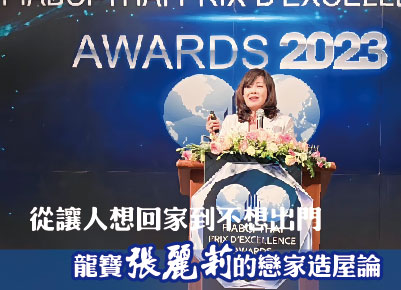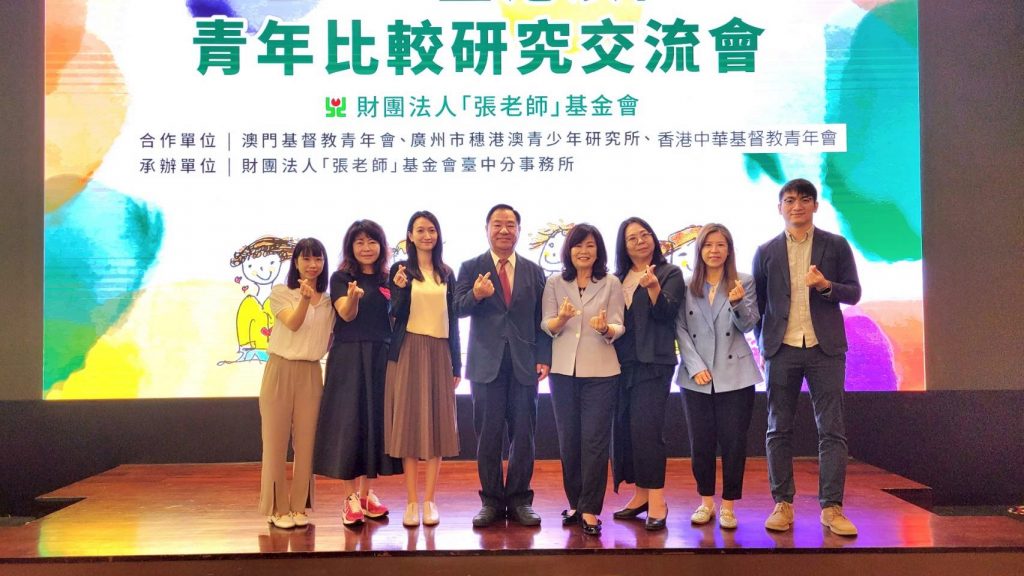Keys to Self-Efficacy in Youth
Lily Chang|Finger Media by LIN,MING-YOU


Teacher Chang Foundation research found that parents become the CEO of the family to enhance family leadership and create a good family atmosphere is a key factor affecting the self-efficacy of youth, the eighth Taiwan, Hong Kong, Macau and Guangzhou to present the “Research Survey on the Influence of Families on the Self-Efficacy of Youth”, which was co-hosted by Chairman of the Board of Directors of the Teacher Chang Foundation, Mr. Yung-Kuang Ge, and Director of Teacher Chang Center, Mr. Li-Li Chang.The survey was co-chaired by Mr. Y.K. Ge, Chairman of Teacher Chang Foundation, and Ms. Lily Chang, President of Taichung City Teacher Chang Foundation in Taiwan, in order to thank the YMCA of Hong Kong, the YMCA of Macau, and the Guangzhou Guangzhou-Hong Kong-Macau Youth Institute for caring about youth issues.
A total of 1,745 valid samples of youth aged 12-16 were collected, including 365 from Taiwan, 808 from Hong Kong, 362 from Macau and 210 from Guangzhou. The average age of the sample was 13.77 years old, with 849 males accounting for 48.65% and 896 females accounting for 51.35%. The survey explored how the family affects adolescents' self-efficacy, with in-depth studies on “family leadership type” and “family atmosphere” to re-examine the influence of family interactions and atmosphere on adolescents' self-efficacy.
The study found that there are some differences between Taiwan, Hong Kong and Macau: in Taiwan, Hong Kong and Macau, both family leadership type and family atmosphere can predict adolescents' self-efficacy performance, while in Guangzhou, only family atmosphere can predict adolescents' self-efficacy performance.
Family is the primary environment that nurtures adolescents' self-perception. During the transition from childhood to adulthood, adolescents experience significant cognitive, behavioral, emotional, and physiological changes, and the environment shapes a person's self-identity and influences his or her thoughts and behaviors. According to the results of the survey, family atmosphere and family leadership have a relevant impact on adolescents' self-efficacy. Primary caregivers are able to see the abilities of each family member, establish and cultivate family relationships, and take the initiative in guiding them, which can still help adolescents develop independent problem-solving skills in a competitive family atmosphere.
On the other hand, parents who take too much care of their children, making all arrangements and solving all kinds of problems for them, will easily lead to their children's low self-care ability, low resistance to stress, and insufficient ability to deal with problems. Adolescents with higher self-efficacy, ability, skills and knowledge to face life problems, including personal confidence and determination to face challenges and difficulties, are more effective in achieving goals and promoting happiness in life.
The Chinese society has different impacts on the self-efficacy of adolescents due to regional cultural differences. In view of the regional cultural differences, it is appropriate for various organizations to develop family service programs suitable for each region to assist families to enhance the self-efficacy of adolescents.

 MENUCLOSE
MENUCLOSE